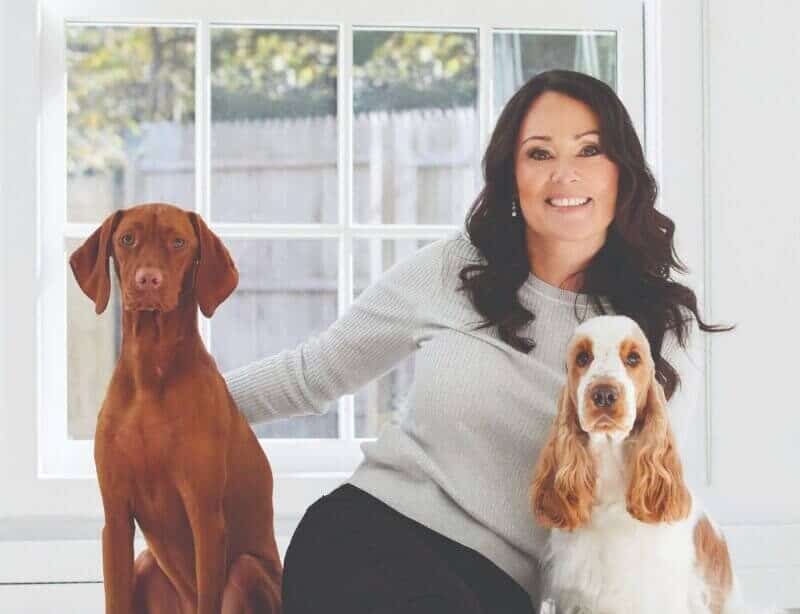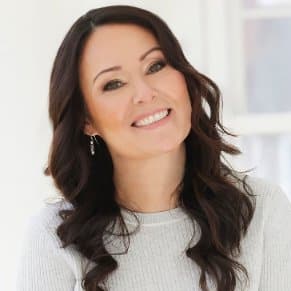It’s been a minute since I was a Junior Handler, but when asked about how that experience shaped my professional career, the memories came flooding back. Growing up outside of St. Louis, Missouri, my parents and I spent many hours in the car driving to dog shows across the country. My mom was the breeder, dad the chauffer, and I quickly became the family handler, finishing my first champion when I was twelve. Competing in the Junior Showmanship and regular breed rings from elementary school through high school was its own form of education.
Participating in the sport and competing as a Junior Handler teaches you how to care for dogs, work with dogs, and compete as a team with a dog. You also learn planning, preparation, dedication, responsibility, and sportsmanship. Almost every aspect of being a Junior Handler can be directly applied to skills needed in the professional world.
Participating in the sport and competing as a Junior Handler teaches you how to care for dogs, work with dogs, and compete as a team with a dog. You also learn planning, preparation, dedication, responsibility, and sportsmanship. Almost every aspect of being a Junior Handler can be directly applied to skills needed in the professional world. Looking back, there are lessons that I walked away with that have given me support over many years and in a variety of undertakings.
Banking Confidence
Handling as a Junior is unlike any other sport in that age is not a factor. Kids and adults compete and are evaluated on the same level. The winner is selected based on the quality of the individual’s dog. The fact that young people can be victorious over adults can help build a tremendous amount of confidence at a young age. You are equal in the ring and, if you have a quality dog and handle it properly, this empowerment can make all the difference to a kid.
The confidence built in the ring as a young handler will stay with you for the rest of your life. As you face challenging or intimidating academic or professional tasks, you can recall memories of a difficult dog you handled, staying calm while in a final lineup, or handling a dog to Best of Breed over professional handlers. Those experiences will remind you that “you got this.” You have already learned how to handle pressure.
An example of this is when I was completing my master’s degree in communications. When faced with my final oral examination, I had to perform with a panel of professors seated in front of me, ready to answer any question about topics covered throughout the entire graduate program curriculum. I was hopeful that I had the knowledge, but I was not afraid of being scrutinized and in the spotlight as it was familiar to me. I thought to myself, “I piloted two dogs to National Specialty Best in Show wins before graduating high school—I can survive this panel,” and I did. It is a secret strength that Juniors can carry with them through adulthood—calm confidence in oneself.
Lean into the Uniqueness
The second life skill happens more often outside of the ring. I remember being labeled “the dog girl” in school. Showing dogs is an uncommon sport for grade school-aged children. Although I was a cheerleader, I would always be on the fringe because instead of going to parties or sleepovers on weekends, I traveled for dog shows with my parents. Not fitting in can weigh on kids because they fear they are missing out, but I think most Juniors in the sport enjoy the dog show community and the dogs more. It’s important to note that this hobby may seem odd to others when in grade school but, once in the collegiate and professional worlds, your dog experience can be the one thing that makes you stand out.
My “dog girl” label helped me land my first job. After graduating with an undergraduate degree in Mass Communications, I was out pounding the pavement looking for a job as a video editor. I produced a promotional stud dog video of one of my Bearded Collies as a sample of my editing capabilities. It covered the dog’s positive qualities, movement, lineage, and temperament, with music and graphics. This video helped me get an interview for a position as a Production Assistant at a global advertising agency. Now, I’m sure other candidates had similar video editing skills or better, but no one had a subject matter that unique!
Interview day arrived and, of course, my Junior Handling experience had taught me how to dress professionally (like a handler), be on time for the interview (like being ready for your ring time), and not be intimidated during the interview (stay composed). At the end of the job interview, all the interviewer wanted to talk about was his Miniature Schnauzers. The conversation had shifted, and I knew I was “in.” I was offered the job and worked for that agency for seven years.
Use Your Vision
To me, the most fulfilling part of being a handler at any age is to see the potential of a dog and then work to bring that vision to life. This task includes improving the dog’s coat, physical conditioning, training, and ring presence. I think it is an innate sense that many handlers have. They want to improve what they have to be more competitive, and that trait easily translates to the professional world. It’s not enough to just do a job. You will always look for ways to improve processes, productivity, and efficiencies, and smart employers will value these skills.
Growing up in the sport of dogs can build a young person’s confidence, composure, and determination to succeed in any environment. There is a maturity level in our young people that isn’t always the case in other youth sports.
Growing up in the sport of dogs can build a young person’s confidence, composure, and determination to succeed in any environment. There is a maturity level in our young people that isn’t always the case in other youth sports. Now a parent myself, reflecting on all those hours traveling with my parents, who have passed, I understand what a gift it was to have had that time together. It was a gift for all of us to be together, sharing our victories and losses while supporting our breeds and discussing life’s mysteries over thousands of hours on the road.
Flash Forward
After twelve years in broadcast production in advertising, I returned to the sport but in a professional capacity. In 2002, my career was so time-consuming that I couldn’t commit the time needed to special a dog, but I stayed involved as a dog club member. I was picking up the judge for our specialty show, Tom Davies, at the airport and, during our ride to the hotel, he informed me that AKC was building a PR team and had recently posted job opportunities online. Bingo!
Joining AKC felt like I was coming home to my people, but it was clear that working for the sport in a professional capacity is very different from participating in the sport. As one of only a few PR/Communications professionals for the sport of dogs whose job it is to expand the audience, shift perceptions, educate and entertain, it is critical to understand how the outside world perceives purebred dogs and the sport. You have to be able to step outside the bubble and view the sport with objective eyes. I hope that fanciers can appreciate the AKC, WKC, and KCofP’s communication efforts to keep the sport relatable and relevant in today’s dog-owning climate—it’s a heavy lift. Working year-round to craft messaging and content that shifts perceptions and educates is a critical service to the future of the sport. (And although AKC and WKC have large platforms on social media and television, every fancier is a spokesperson for the sport. Every touchpoint with the public matters and, as a community, we should be sharing unified talking points.)
Make It Happen
There is no doubt that competing in Junior Showmanship and in the regular classes as a young person was an invaluable experience that helped me secure career positions in advertising, and with the AKC and my current job as Director of Communications at the Westminster Kennel Club. Juniors, know that your experiences in the ring today will translate and support you in all of your collegiate and professional endeavors down the road.
And remember, you will always have a secret strength—you are a dog handler.
By Gail Miller Bisher









